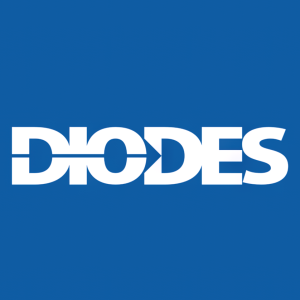PCIe® 3.0 Packet Switches from Diodes Incorporated Bring Greater Data Lane Versatility to Automotive Systems
The PI7C9X3G606GPQ offers 6-port/6-lane operation, the PI7C9X3G808GPQ 8-port/8-lane, and the PI7C9X3G816GPQ 8-port/16-lane. The switches are targeted at ADAS, telematics, infotainment systems, and controllers that are utilized as zonal networking architectures continue to emerge.
The elevated signal integrity performance provided by these PCIe packet switches support long trace lengths, with losses of <30dB. They can connect with up to seven different endpoints and support multi-host applications. Each switch features a built-in low-power clock buffer, thereby simplifying designs, saving space, and reducing the associated component count. Their typical latency is only 150ns.
The ability to select between 6 and 16 lanes gives engineers using these new packet switches broad flexibility to develop projects quickly, and with the most suitable options. Advanced power management functions ensure constant energy-efficient operation.
“Diodes Incorporated’s contributions to developing the PCIe specification-based products continuously bring new benefits to automotive and other markets, thus growing the PCIe ecosystem,” said Al Yanes, PCI-SIG President and Chairperson.
“The flexibility of these PCIe packet switches offers many advantages for automotive applications,” adds Dr. Jin Zhao, Senior Vice President, Analog Business Group, Diodes Incorporated. “This new series of automotive-compliant PCIe packet switches is designed to expand PCIe signal outreach in next-generation vehicle interconnections.”
The PI7C9X3G606GPQ, PI7C9X3G808GPQ, and PI7C9X3G816GPQ are all AEC-Q100 Grade 3 qualified, manufactured in IATF 16949 certified facilities, and support PPAP documentation. They are supplied in 144-pin FCCSP, 196-pin HFCBGA, and 324-pin HFCBGA packages. In 1,000 piece quantities, the PI7C9X3G606GPQ is available at
The PI7C9X3G808GPQ has been successfully used to aggregate dual automotive processors in an automotive processing reference design. Conference attendees can find Diodes at booth 18 where this demo board will be on display.
Further information is available on diodes.com here.
About Diodes Incorporated
Diodes Incorporated (Nasdaq: DIOD), a Standard and Poor’s SmallCap 600 and Russell 3000 Index company, delivers high-quality semiconductor products to the world’s leading companies in the automotive, industrial, computing, consumer electronics, and communications markets. We leverage our expanded product portfolio of discrete, analog, and mixed-signal products and leading-edge packaging technology to meet customers’ needs. Our broad range of application-specific solutions and solutions-focused sales, coupled with worldwide operations of 32 sites, including engineering, testing, manufacturing, and customer service, enables us to be a premier provider for high-volume, high-growth markets. For more information visit www.diodes.com.
The Diodes logo is a registered trademark of Diodes Incorporated in
PCI-SIG®, PCIe® and the PCI Express® are US registered trademarks and/or service marks of PCI-SIG.
All other trademarks are the property of their respective owners.
© 2023 Diodes Incorporated. All Rights Reserved.
View source version on businesswire.com: https://www.businesswire.com/news/home/20230613627348/en/
Gurmeet Dhaliwal
Head of Corporate Marketing & Investor Relations
Diodes Incorporated
+1 408-232-9003
Contact Us
Source: Diodes Incorporated (P)







